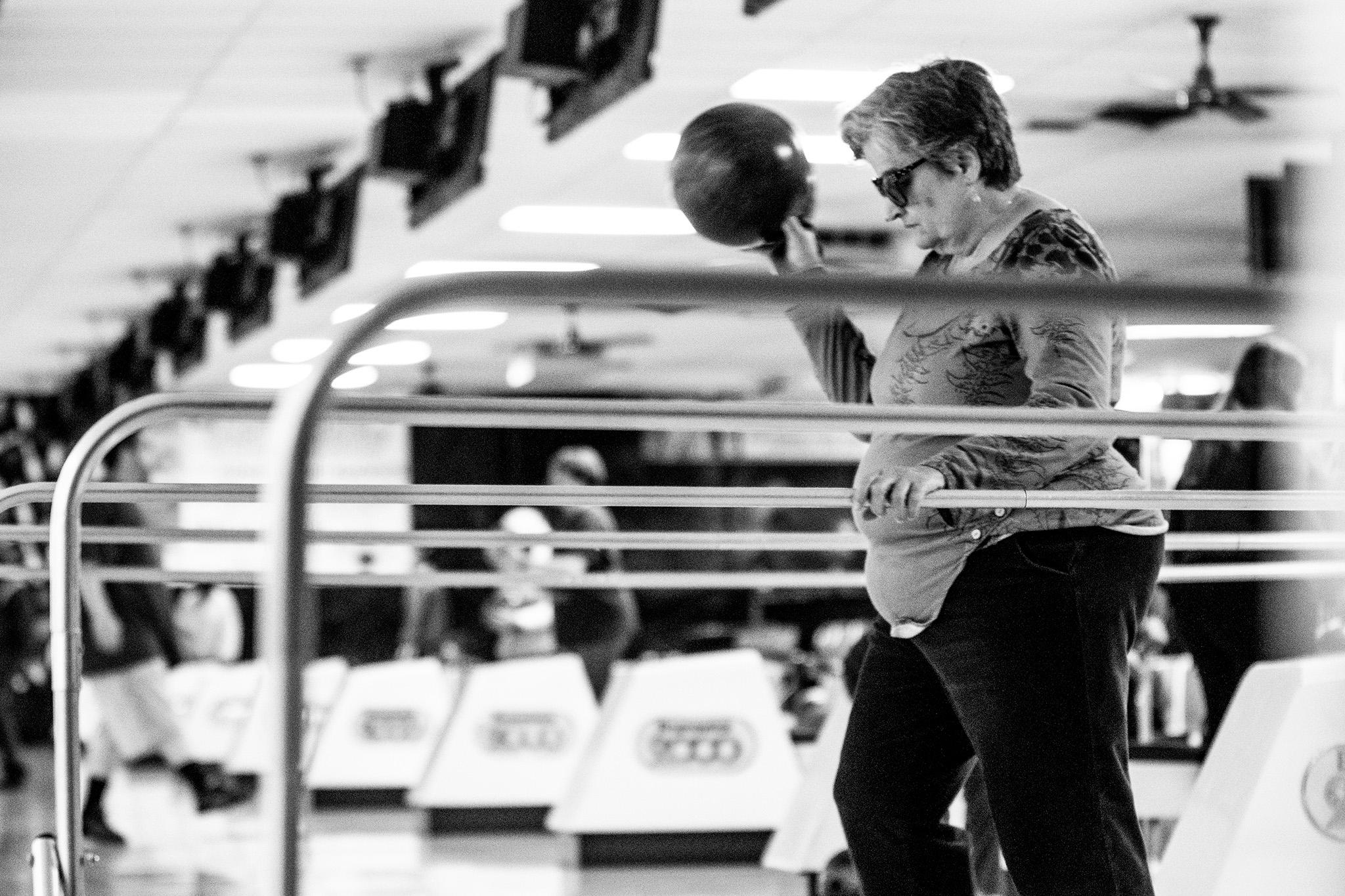Marlene Kaiser and Veronica Rodriguez have bowled together pretty much every weekend since the 1970s. It was just three of them when they started playing all those years ago. They had no idea they were starting something that would last for decades.
"Did we do it because we were bored in the winter? Why did we do it?" Kaiser asked Rodriguez when she had a break between frames.
"I don't know," Rodriguez replied, laughing.
Fifty years later, they're still bowling together, and they've made some new friends. Over time, their weekly meetup blossomed into the Colorado Blind Bowling Association, a group of about 35 members who roll balls every Saturday at Federal Boulevard's Crown Lanes. Teams include players ranging from fully sighted to fully blind; blind players use rails to navigate to their lanes, then sighted players call out numbers to fill in their teammates on which pins remain, or whether they shot too far to one side, to help them get positioned for their next throw.
In pursuing the sport, Kaiser and Rodriguez have created space for fun, competition and community that's become extremely important for those involved. Nobody is bored.
"I don't let Mr. Boredom in," Rodriguez said, flashing a grin behind her wide sunglasses.
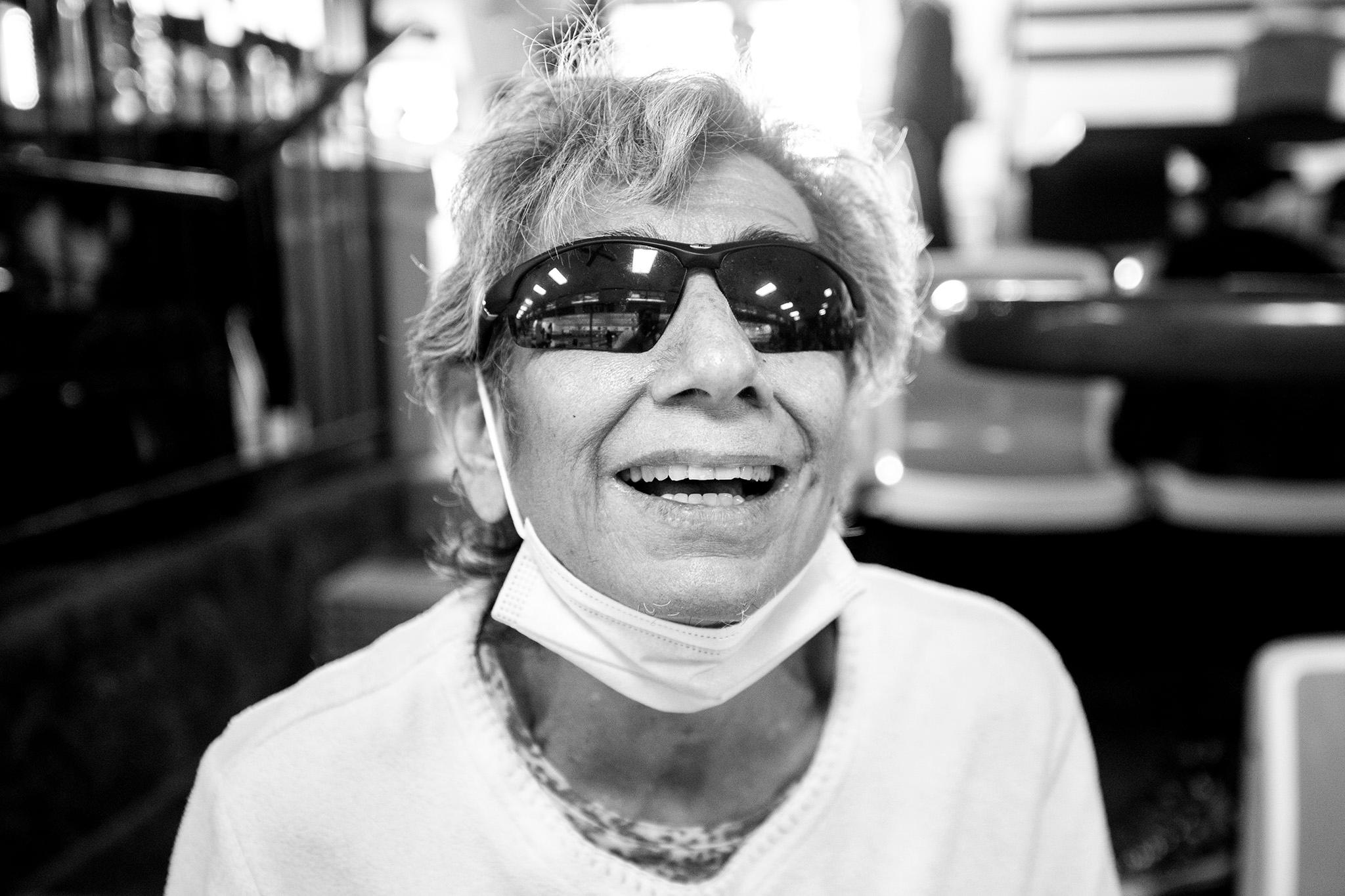
These weekly games have become a center of gravity for a community.
Robert Wright was a lifelong athlete, drawn to fast sports and fierce competition. Bowling wasn't on his radar, until he lost his sight and his life changed forever.
"I didn't see bowling as a sport. It was just something people did," he remembered. "Sports for me was anything that had a ball that I had to run."
He was diagnosed with glaucoma his teens, a slow degradation of his optic nerves that left him completely blind. As his vision faded, he worried sports might be off the table for him. But Wright enrolled at a school that catered to blind students, where he found that door didn't close all the way. He ran track, which took him to competitions around the world. Then, in the '80s, he met Kaiser, who brought him into her universe of bowling. His appreciation for the game - which he now thinks of as a sport - has grown.
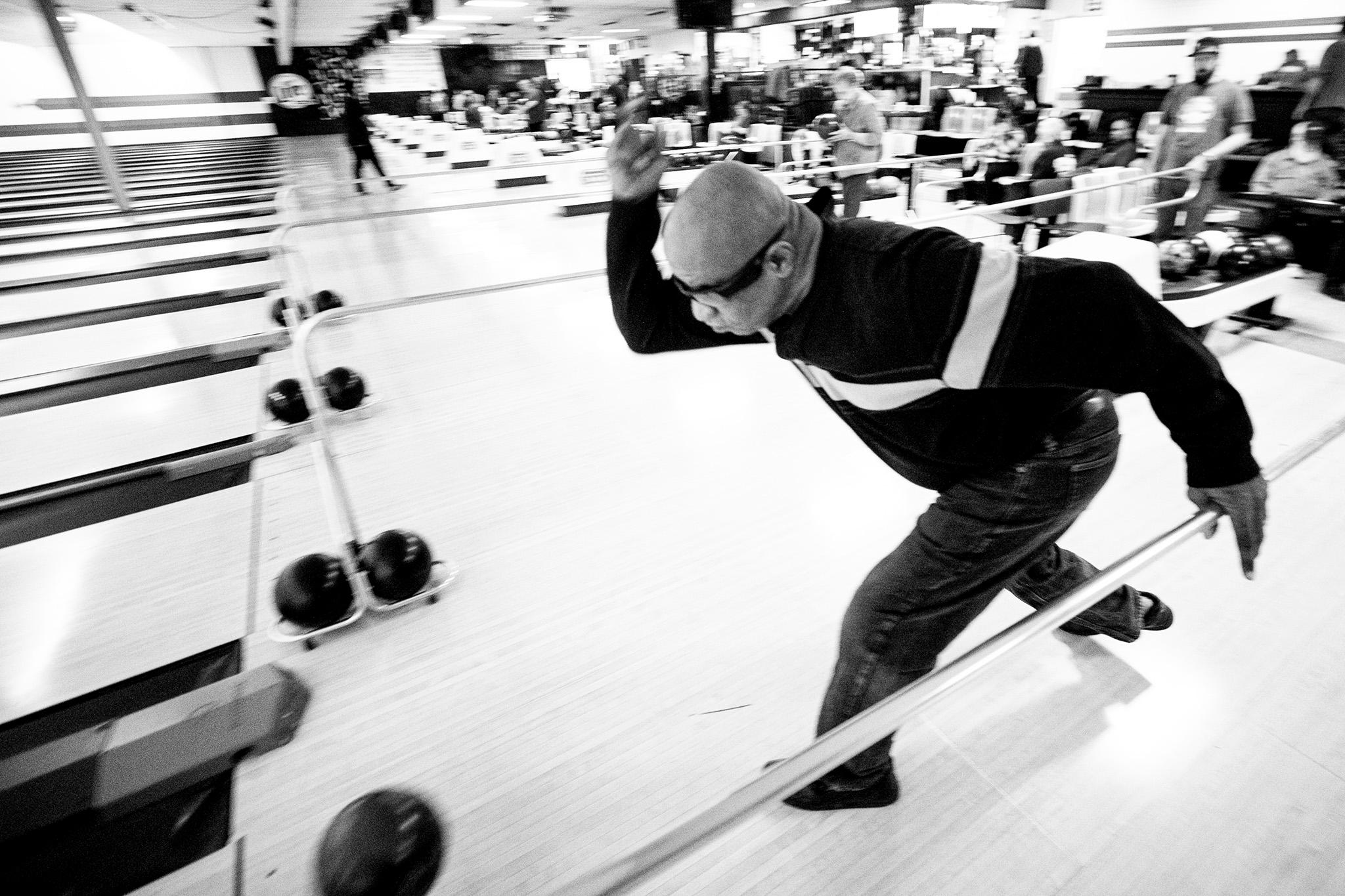
Wright is competitive, and always working to improve his scores, which is one reason he's stuck around so long. More important, he said, is the coaching and mentorship he can bring to this community.
"When I can work with someone and help where I can to help them get better, make a difference, then it is a treat," he said.
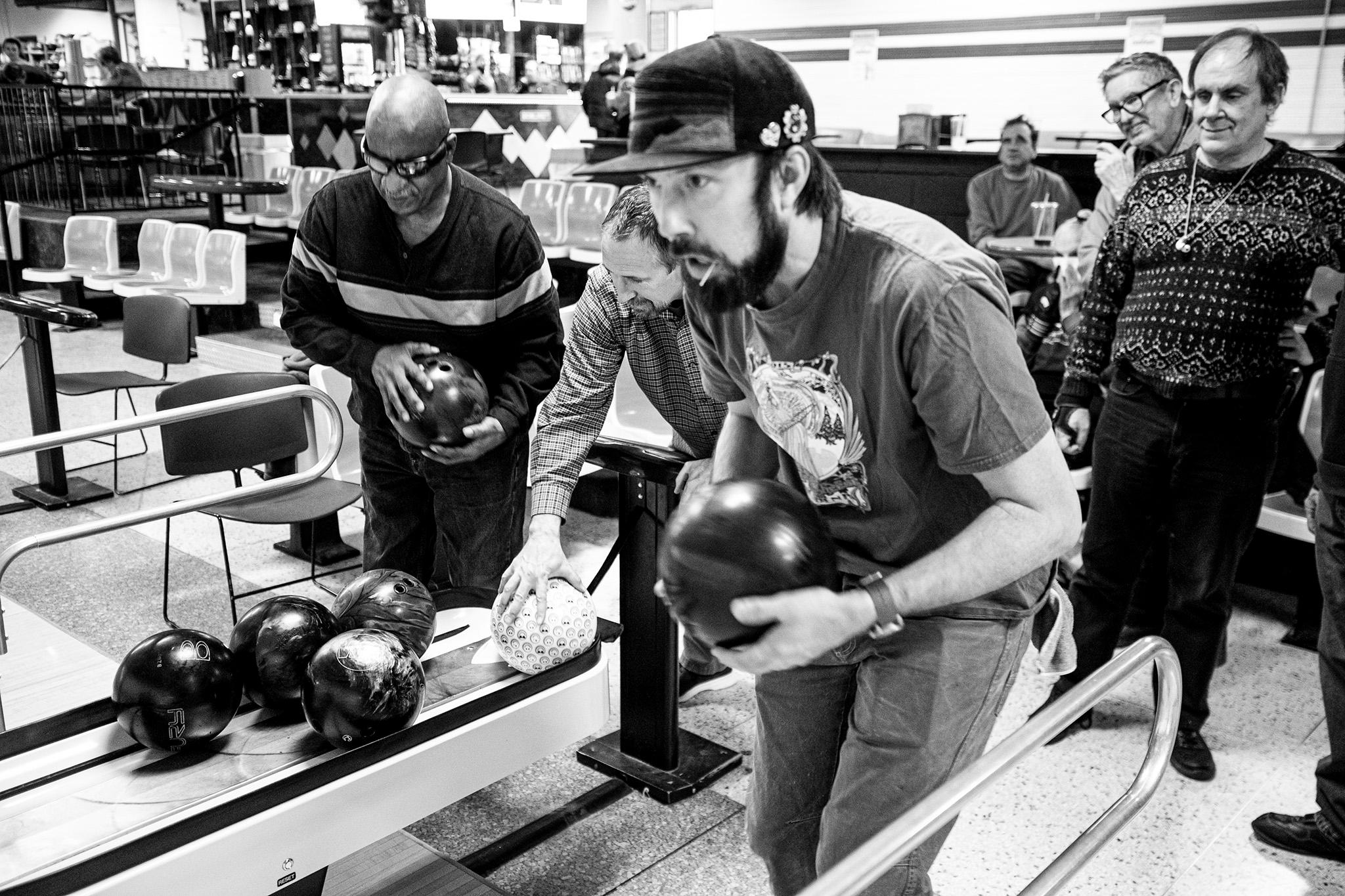
Christine Menges, who's been fully blind her whole life, said she didn't know she could bowl until she discovered the league. She's stuck around, but not just for the points.
"It's the competitiveness, because I'm type A, and the friendships that we have. It's a close community of people," she told us.
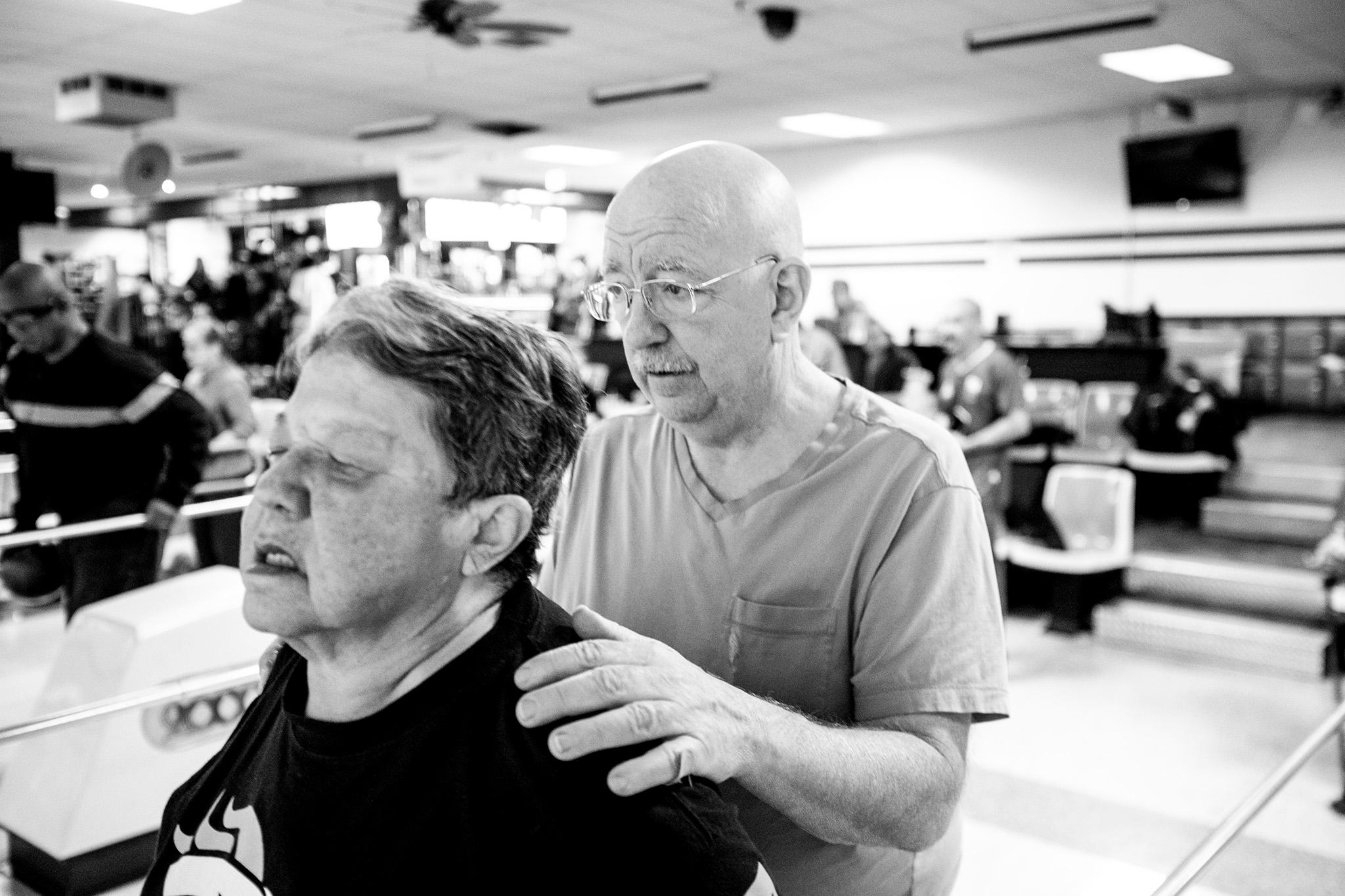
This feeling is shared throughout the league. Kaiser said the Saturday pilgrimages to Crown Lanes are the only trips out each week for some members, who might have trouble getting transportation or finding other activities catering to their needs.
John Fahlstrom, another longtime bowler, said the blind community can often feel "fragmented," so it's important that there's space to gather, eat and laugh together. They've developed deep bonds in their years together.
"We're a big family," Kaiser said. "Something happens to one of us, that happens to all of us."
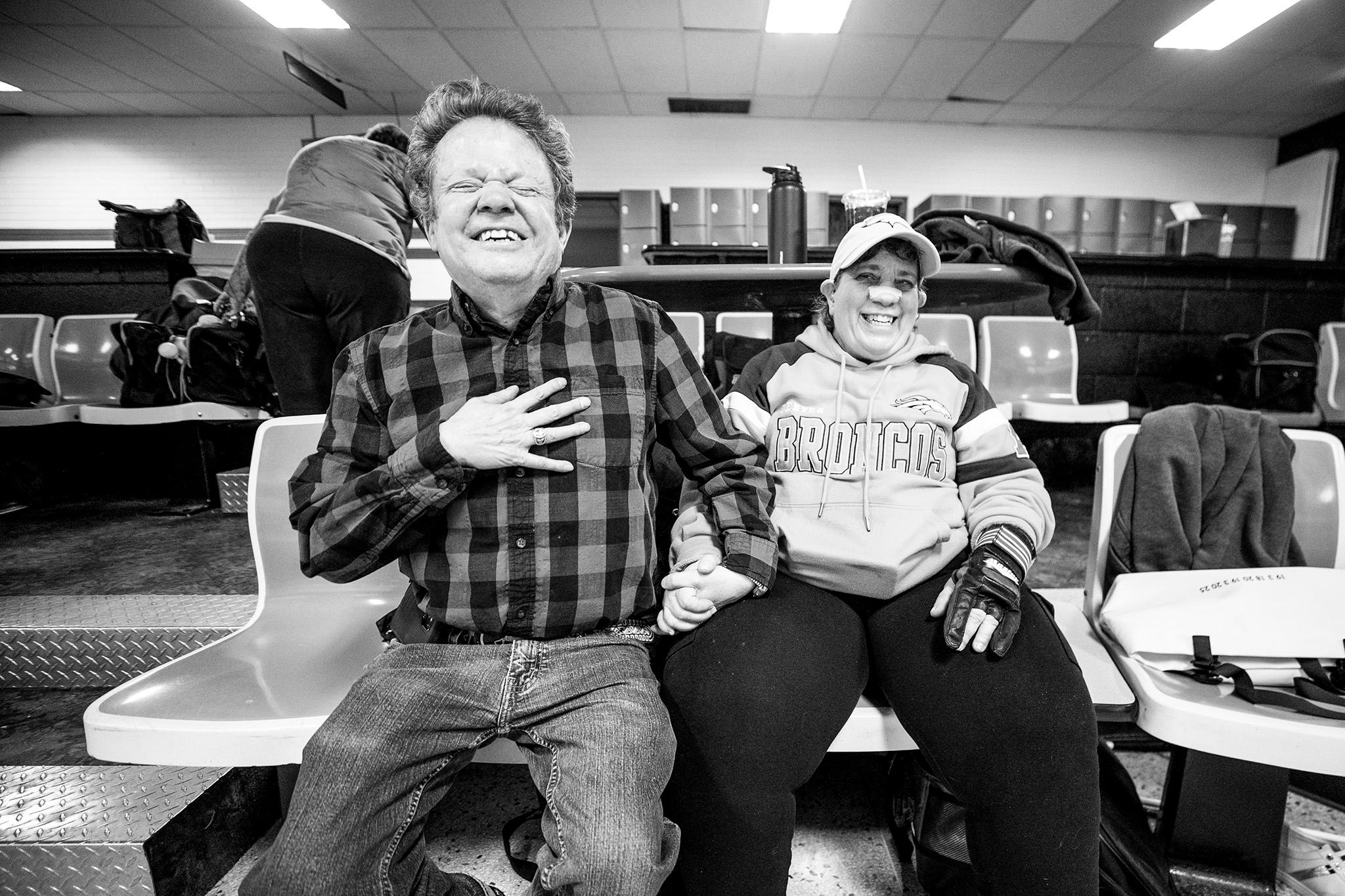
Their community has opened its arms wide, delivering love that cemented their place at Crown Lanes.
KC and Jackie Falzgraf bought the bowling alley in 2018, one of the last independently owned alleys in the metro area. KC ran a landscaping business for years, but it was tough work and he wanted to find another way to make ends meet where he could spend more time with his family.
In particular, he wanted a place where his daughter, Shanna, could be included. She was diagnosed with a malignant brain tumor as an infant, and the wheelchair she relied on didn't always fit into the world around her. But she and her brother, Jake, loved to bowl, and this was a place where they could work together. Jackie remembered Shanna would set up on lane number two, her usual spot, and play game after game until closing time.
"When we bought this place, I told her, I said, you're going to be my greeter," KC remembered, tearing up. "When she met you, she just became your best friend. If you told her your name, she never forgot it. When you walked through the door, her arms flew up and she gave the biggest hugs. And people here just fell in love with her."
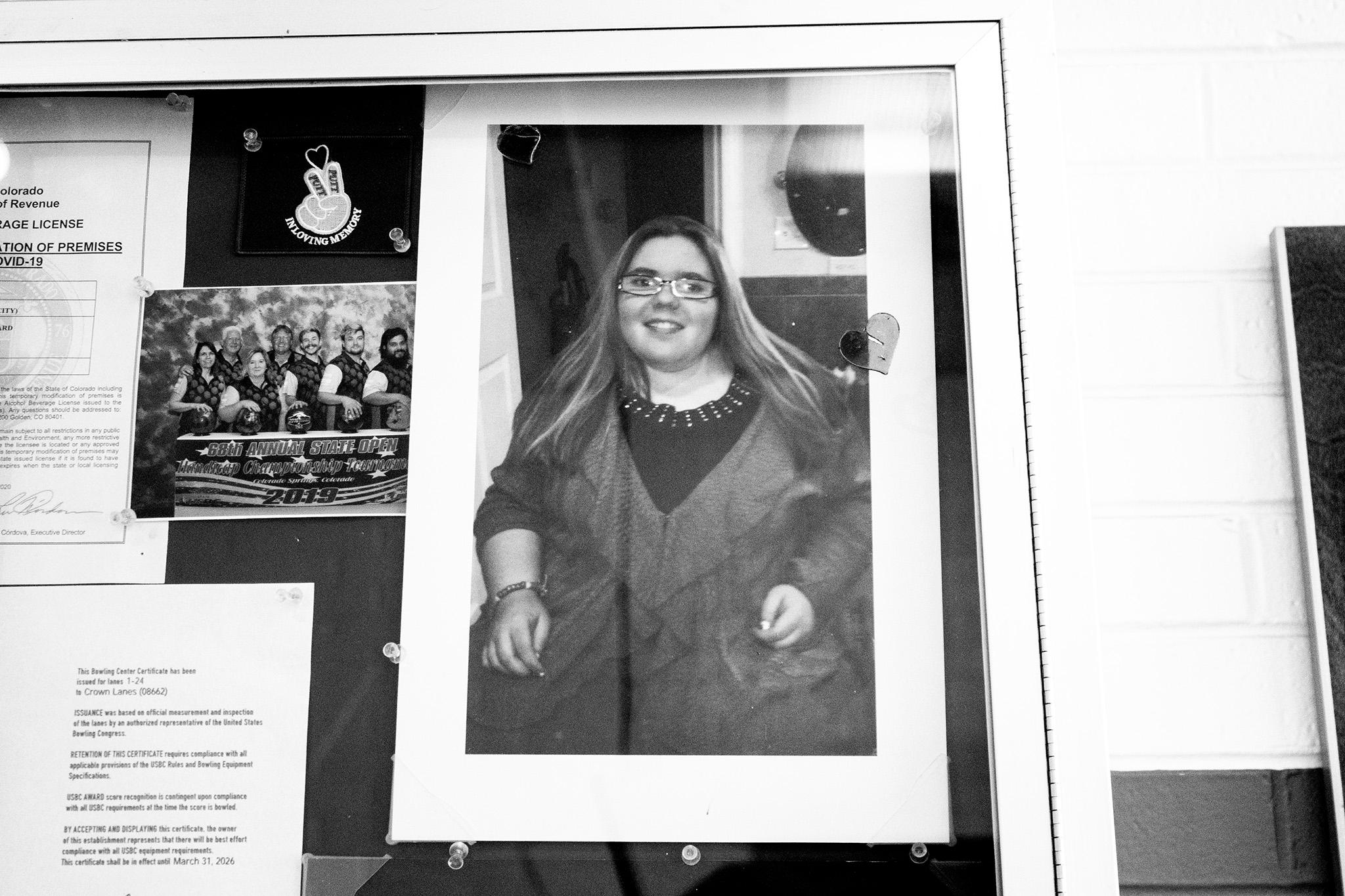
Shanna died suddenly in 2019, when she was 25. Her parents said doctors told them she would be lucky to make it to her sixth birthday, so they were grateful and surprised at how much time they had together.
The Falzgrafs said they worked hard to ensure that Shanna lived a full life. She had a boyfriend and joined a cheerleading team, but Jackie said it wasn't always easy for her to find social groups to be a part of.
"When you have a child with special needs, those milestone things like prom and graduation and having a boyfriend and getting married, those kinds of things, you don't get a whole lot and they don't have a big circle of friends," she said.
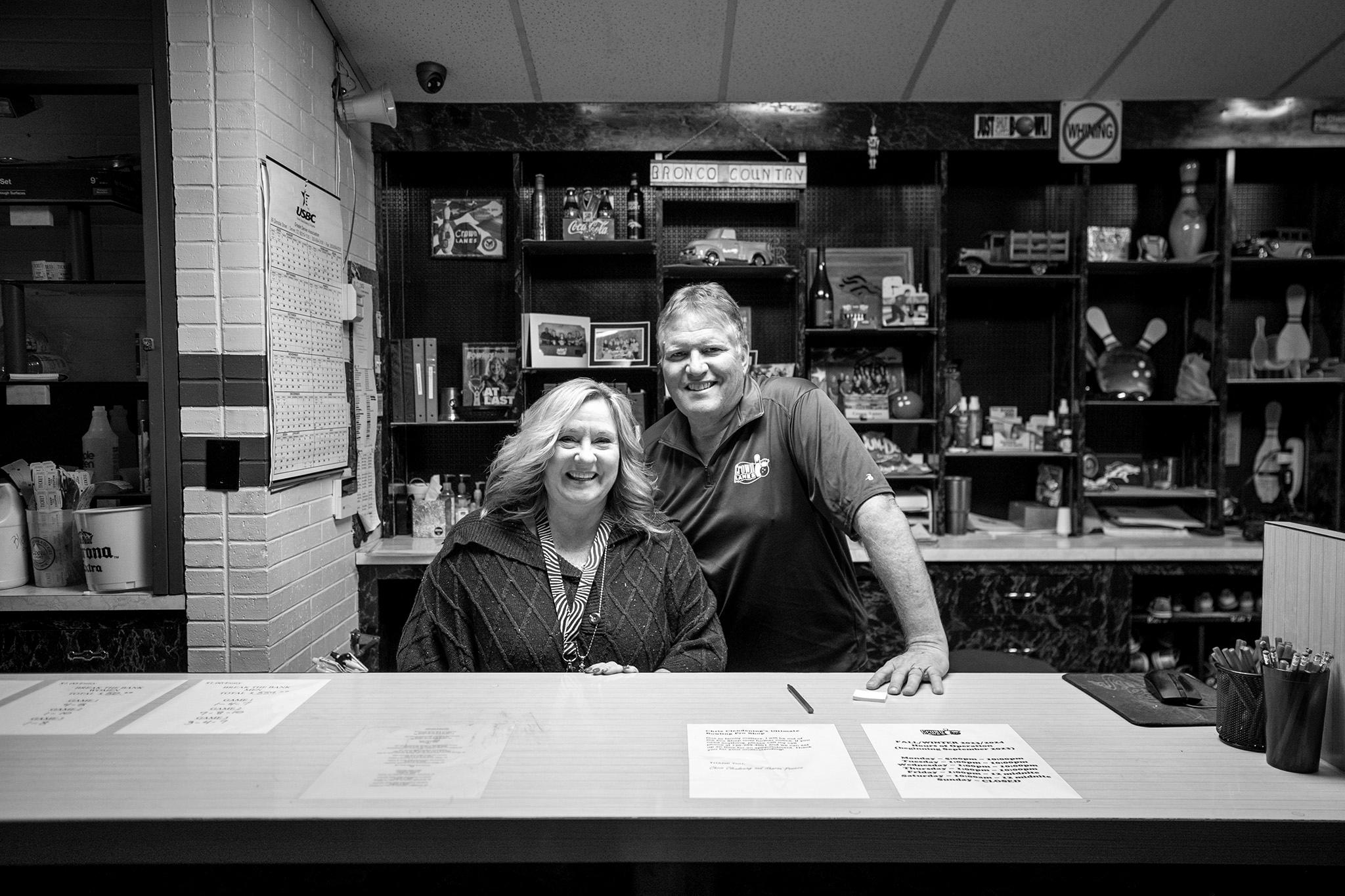
That's one reason why it was such a big deal for them when the Colorado Blind Bowling Association invited Shanna into their crew. They'd been bowling at Crown Lanes since the 1990s.
"It wasn't very long that we were here that they asked her to join and included her. It was pretty special," she said.
Jackie said she fit right in with the blind bowlers. They they understood her on a deeper level than most.
"They get it. They knew it," she told us. "It was just something she needed and it was a good fit."
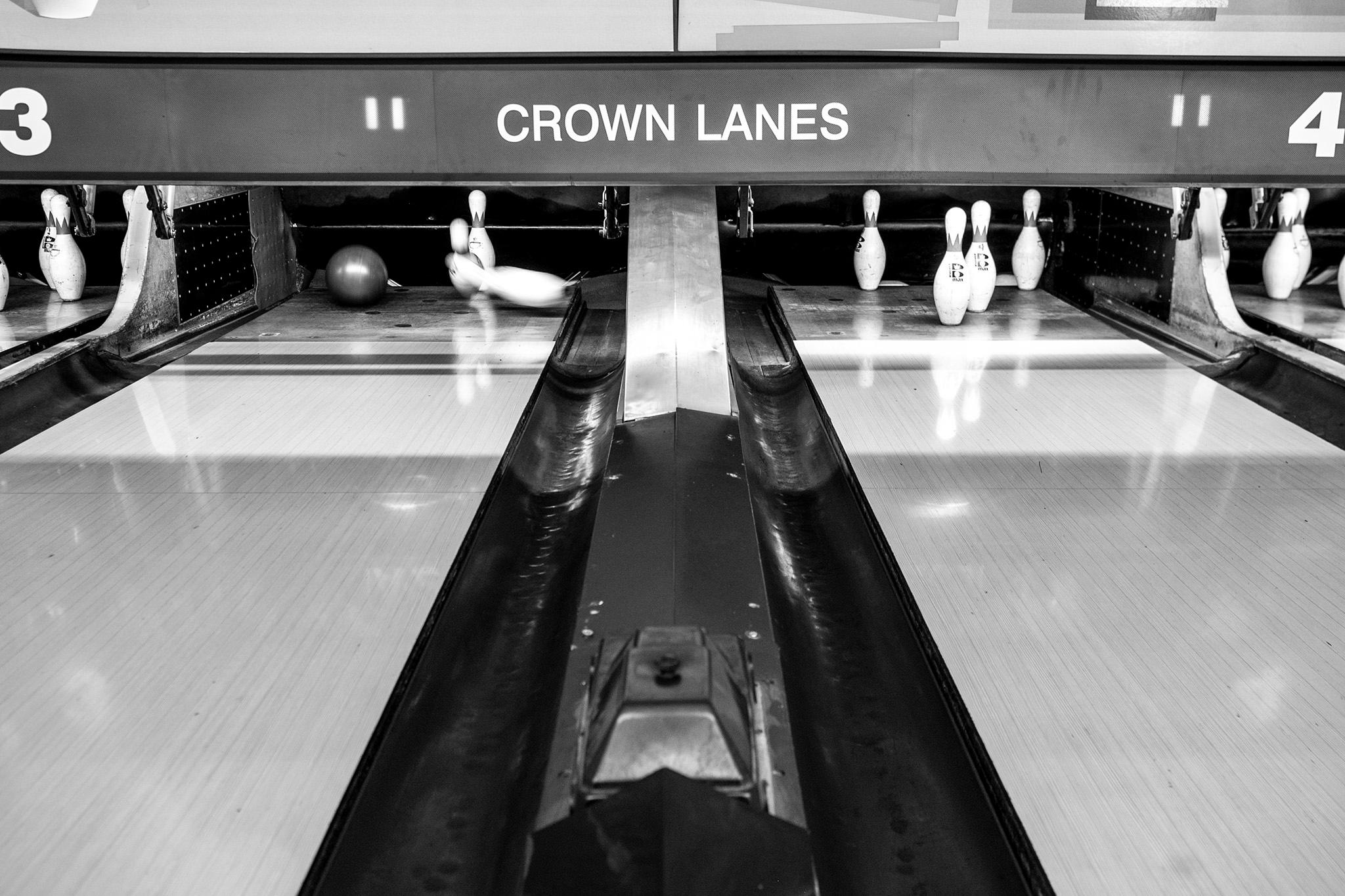
Today, Crown Lanes hosts a handful of adaptive bowling leagues, a few that are involved in the Special Olympics and others whose wheelchair-using members rely on the ramp the Falzgrafs installed for Shanna when they bought the place.
The last few years have been tough for the family - not just losing Shanna but also weathering COVID-19 shutdowns a year later. But Jackie and KC say they need to keep the place alive, for reasons that go beyond their own financial security: so many people have found community in their space.
"This is a place to give back. God's been good to me," KC said. "Being able to have a place this special, with its roots and everything, it's more than I ever dreamed."
Interested in bowling? The league says they're looking for more people to join them! You can find their contact info on their website.
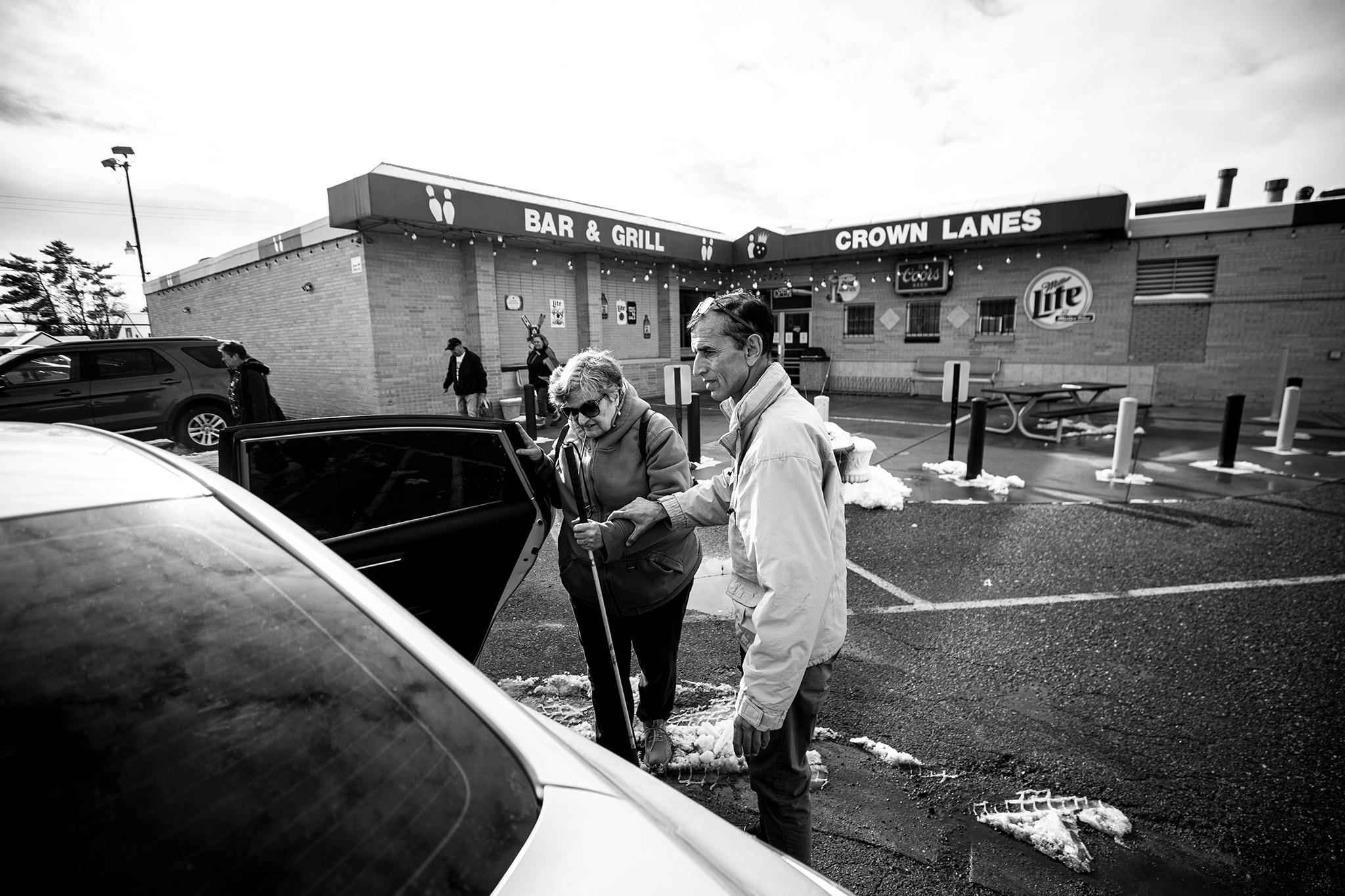
 Thanks for the support, Denverites!
Thanks for the support, Denverites! 
